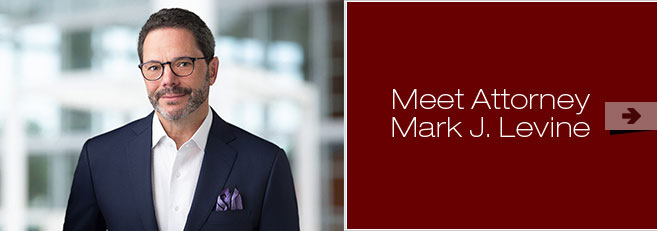Categories
Recent Posts
- Meaningful Harassment Training
- Put it in Writting
- Get A Receipt: How to stop employee misappropriation
- Focus on the Wins
- HALLOWEEN EDITION: CUES TO CALL A LAWYER
Archives
- December 2023
- October 2023
- May 2023
- February 2023
- October 2022
- August 2022
- May 2022
- April 2022
- March 2022
- January 2022
- June 2021
- May 2021
- December 2020
- September 2020
- July 2020
- May 2020
- March 2020
- February 2020
- December 2019
- October 2019
- September 2019
- June 2019
- April 2019
- March 2019
- January 2019
- December 2018
- September 2018
- June 2018
- May 2018
- February 2018
- January 2018
- December 2017
- September 2017
- July 2017
- May 2017
- April 2017
- January 2017
- October 2016
- September 2016
- July 2016
- June 2016
- May 2016
- March 2016
- February 2016
- December 2015
- November 2015
- October 2015
- August 2015
- June 2015
- May 2015
- March 2015
- January 2015
- December 2014
- November 2014
- September 2014
- August 2014
- July 2014
- May 2014
- April 2014
- March 2014
- February 2014
- January 2014
- November 2013
- September 2013
- August 2013
- July 2013
- June 2013
- May 2013
- April 2013
- February 2013
- January 2013
- October 2012
- August 2012
- July 2012
- May 2012
- April 2012
- January 2012
- December 2011
- November 2011
- October 2011
- September 2011
- May 2011
- March 2011
- January 2011
- December 2010
- November 2010
- October 2010
Facebook in the Workplace
Posted on January 19, 2012 in Compliance, Consulting, Employment Litigation
Facebook turns 8 on February 4, 2012. In that relatively short period of time, social media has dramatically changed the workplace. The long-term implications are only beginning to surface. This newsletter discusses five critical issues employers should consider as we all confront social media in the workplace.
Adopt a Social Media Policy
All employers should have a social media policy. Employers with a heightened sensitivity to social media should consider having applicants sign-off on their social media policy as a prerequisite for seeking employment. Also, because it is such a hot button topic, a social media policy might be best addressed in a separate policy acknowledged in writing by all employees, as well as included in the employee handbook. While most provisions in an employee handbook can be standard from employer to employer (see my newsletter of January 5, 2011), a social media policy should be tailored for the business or for certain job positions which necessarily require use of social media (e.g., a recruiter).
Encourage Good, Cautious Posting Habits
Think before you speak is a cliché applicable to all forms of communication, but somehow lost in social media. The convenience and speed of Facebook and Twitter fosters candid, sometimes unfortunate statements that are challenging to retract. These social forums move rapidly. They command immediate reactions to circumstances that all too often require measured deliberation. People abridge words and invent acronyms that seem to go viral in nano seconds to reduce the cost of texting and tweets. A good social media policy coaches employees to be cautious and slow when posting information.
Protecting the Company’s Goodwill
Employers are justly concerned about what their employees post. Employers should explain in their social media policies that employees are prohibited from associating their personal views with the views of their employer. Even with such a policy, employee statements in social media might reflect poorly on the organization or create controversy in the workplace. When an employee takes a public stance on a divisive subject (e.g., abortion, “don’t ask don’t tell,” or same-sex marriage), the employee creates the risk of offending co-workers and customers with strong differing views.
The Company might also be held accountable for employee conduct that appears to be endorsed by the Company. The Federal Trade Commission issued guidelines for testimonial advertising that encompasses social media. These can be found at http://www.ftc.gov/opa/2009/10/endortest.shtm.
Incorporating Social Media in Other Policies
Social media allows bad actors a new forum for poor choices. Cyber bullying stands out as a particularly troubling example. Employers should state in their social media policies that harassment and discrimination is prohibited in all forms and forums, including social media.
Likewise, employees should be reminded in the Employee Handbook that they have no expectation of privacy in social media that is used on company computers or property.
The National Labor Relations Act (the “NLRA”)
On August 18, 2011, the Office of the General Counsel of the National Labor Relations Board (which enforces the NLRA) published a report “Concerning Social Media Cases.” The report explains recent NLRB decisions regarding Facebook postings as protected “concerted activity.” (Click for redirection to report) Concerted activity is an action by an employee “with or on the authority of other employees, and not solely by and on behalf of the employee himself,” which cannot be the basis for an employer’s action against the employee. For example, an employer generally cannot discipline employees for discussing staffing levels, criticizing job performance, or expressing concerns regarding workload or employer policies. Facebook (and other social media) is an acceptable and protected means for employees to engage in concerted activity according to NLRB decisions.
The NLRB also provides some limited examples of what employers may not include in their social media policies. With assistance from legal counsel, employers should examine and incorporate the most recent NLRB guidance into their social media policies.
I value your thoughts on this evolving and facsinating topic of social media in the workplace. Should employers monitor employee use of Facebook? Should Facebook be banned at work? What benefit does your business derive from social media? Communicate your opinions, concerns, and questions.

